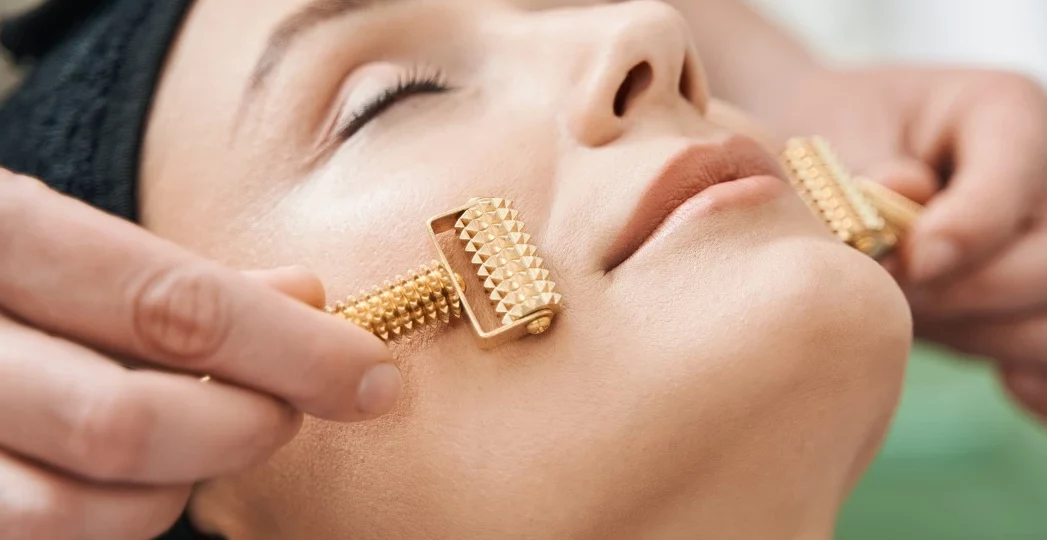Last Updated on: 27th December 2025, 07:06 am
Pressure Points for Toothache: The Complete Guide
A toothache can be quite uncomfortable, and if it occurs at night, it can turn those hours into a prolonged time that seems endless. Even if the toothache is intense, it can be annoying during the day. The body has sensitive points that can alleviate a toothache, which is activated through acupressure or digitopuncture.
In such circumstances, where a quick solution is generally not found, there are some alternatives for managing dental discomfort like applying pressure points for toothache. However, if you are interested in learning about the effective essential oils to relieve toothache, click here.
What is acupressure?
Acupressure or digitopuncture is a technique that comes from traditional Chinese medicine (natural and holistic), ancient knowledge according to which the body’s energy circulates through channels called meridians, which run throughout the structure. These meridians can become blocked, and when this happens, the flow is inhibited, resulting in pain or illness.
Traditional Chinese medicine states that there are 362 points on the meridians, and in that network of channels are the pressure-sensitive points, a technique that uses mainly the fingers to control symptoms such as pain, nausea, and other discomforts.
Acupressure works on the same principles as acupuncture but is non-invasive. Where acupuncture places a needle, acupressure applies pressure with the hands or fingers. Pressure has a stimulating effect on blood flow, relieves tension, and reduces pain.
In 2003, the World Health Organization included acupressure as an effective treatment for managing dental pain. Digitopuncture can be applied at home or in a specialized center for that therapeutic technique. If done at home, it is recommended to:
• Assume a comfortable position.
• Breathe deeply, and relax the muscles, arms, and legs.
• Massage the point of the body to be stimulated with strong pressure.
• The exercise can be repeated several times.
• If the pain is intense, it is best to stop the therapy.
How to apply pressure points for toothache?
Acupressure is considered to help relieve toothache by producing the following effects:
• Increasing blood circulation, which helps reduce swelling.
• Changing the brain’s perception and processing of pain signals.
• Stimulating the release of endorphins that affect pain threshold management.
• Releasing the chemical adenosine that relaxes the nervous system.
• Reducing blood pressure and adrenaline levels in the body.
What are the pressure points for toothache relief?
According to traditional Chinese medicine, there are five meridian points in the body that allow for toothache management. Each meridian point has a code that facilitates its location in the body.
1. Stomach meridian (ST 6)
This is another relevant point for relieving toothache. It is located on the cheek, between the corner of the mouth and the bottom of the earlobe. When you clench your teeth, the muscle flexes in your cheeks, and that’s where the pressure point is.
The stomach meridian is activated by applying firm pressure with your thumbs for one minute while taking deep breaths. You may feel tingling. If necessary, repeat the exercise.
Pressure on the jaw muscle relieves toothache, swelling, and jaw spasms.
2. Small intestine meridian (SI 18)
This is one of the most important pressure points for toothache relief that has the greatest effect on relieving toothache, cavities, swollen gums, congestion, or sinus pain. It is called the cheekbone hole and is located on the lower part of the cheekbone, below the outer corner of the eye, parallel to the lower edge of the nose.
Applying pressure to this point helps manage toothache and gum inflammation. It is activated with the index and middle fingers, pressing firmly for one minute. During that time, take deep breaths.
3. Large intestine meridian (LI 4)
It is located between the thumb and index finger. How to find it? By placing the thumb on the second knuckle of the index finger, a high point of the muscle is marked, and that is the pressure point. It is a point that provides quick relief for toothache.
Firm pressure is applied downwards, massaging for 4 or 5 seconds, accompanied by deep breathing.
4. Gallbladder meridian point 21 (GB21)
It is located between the top of the shoulder and the neck, in the middle of the area. Pressure on this point helps with toothache and jaw pain relief. It also affects cases of facial pain, neck pain, or headaches.
Pinch the sensitive point with the thumb and middle finger and press with the index finger. Then release slowly.
5. Stomach meridian point 36 (ST 36)
This point provides quick results for relieving toothache. It is generally pressed in cases of nausea, fatigue, or stress. It is located below the knee.
When placing your hand on the kneecap, the little finger is positioned on this point. Apply pressure downwards, towards the outside of the shin. By stimulating this point, relief is registered in toothache, nausea, and knee pain. It is also helpful in revitalizing the legs.
When to seek help?
Digitopuncture is a technique that provides temporary relief for toothache, but it is not a substitute for the attention of a dentist or medical service, depending on the case. Professional assistance should be sought in the following cases:
• Difficulty seeing or double vision
• Intense, unbearable pain
• Fever
• Pus flow in the dental piece
• Swelling in the mouth, face, or neck
• Increased pain
• Bleeding from the mouth
The use of these and other pressure points for toothache in acupressure technique can improve or relieve toothache without side effects. The condition should be resolved after the intervention of a general or specialist dentist, depending on the case. If going to a dentist is not possible at the moment, read here to learn more about the effective home remedies you can do to relieve toothache.
It is worth noting that, on some occasions, toothache is a reflection derived from problems in other parts of the body, such as sinusitis, heart disease, or lung cancer. While the acupressure technique provides relief for toothache, the importance of good oral hygiene practice should not be forgotten, a habit that helps prevent these discomforts.
Frequently Asked Questions
Where to Press to Stop a Toothache?
The ear-gate (ermen) pressure point, located between the top of the jawbone and the ear, can be targeted to alleviate toothache pain. Applying pressure to this point may also help with issues like tinnitus, lip stiffness, and ear discharge.
Which Finger to Press for Toothache?
To relieve a toothache, press the area between your thumb and index finger. Specifically, this point, known as LI4, is located at the highest point of the muscle when you rest your thumb beside the second knuckle of your index finger. Additionally, the ST6 pressure point is often used to alleviate mouth and tooth ailments.
Where Do You Press to Stop a Toothache?
Best Pressure Points for Toothache and How They Work
Stimulating certain pressure points can help alleviate tooth pain. Effective acupressure points for tooth pain include Shenmen, located at the top of the ear; Jiache, found on the jaw muscle; and Quanliao, situated under the cheekbone.
What is the Toothache Pressure Point?
Relieve Toothache: Where to Press to Alleviate Pain: SI18 Point
Located in the hollow just below the cheekbone and directly below the outer edge of the eye, applying gentle pressure to this point can help alleviate dental pain and reduce swelling.
Share:
References
1. Frank, Christine (Julio 26 de 2018). Acupresure Points for Toothaches / https://www.healthline.com/health/pressure-point-for-toothache
2. Kivi, Rose (Septiembre 27 de 2019) Everything You Need to Know About Toothaches / https://www.healthline.com/health/toothaches
3. Instituto Superior de Estudios – ISED (Mayo 12 de 2018). La acupuntura para tratar el dolor de muelas
4. Lewsley, Joanne (Junio 30 de 2020) Whar are the best pressure points for treating toothache? / https://www.medicalnewstoday.com/articles/pressure-points-for-toothache
5. MejorconSalud (Enero 26 de 2022) Masajear 9 puntos del cuerpo te ayudará a aliviar todo tipo de malestares / https://mejorconsalud.as.com/masajear-9-puntos-del-cuerpo-te-ayudara-a-aliviar-todo-tipo-de-malestares/
6. Qineng Tan, Xiaomei Cai (s.f.) How to Treat Toothaches With Acupuncture and TCM / https://myartofwellness.com/how-to-treat-toothaches-with-acupuncture-and-tcm/
- Nayibe Cubillos M. [Author]
Pharmaceutical Chemestry |Pharmaceutical Process Management | Pharmaceutical Care | Pharmaceutical Services Audit | Pharmaceutical Services Process Consulting | Content Project Manager | SEO Knowledge | Content Writer | Leadership | Scrum Master
View all posts
A healthcare writer with a solid background in pharmaceutical chemistry and a thorough understanding of Colombian regulatory processes and comprehensive sector management, she has significant experience coordinating and leading multidisciplina...


















